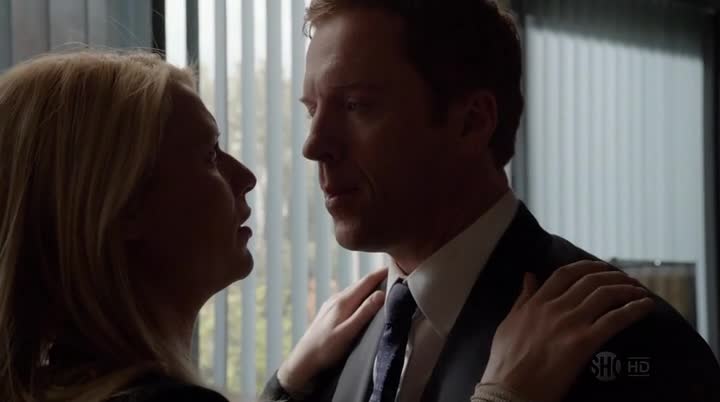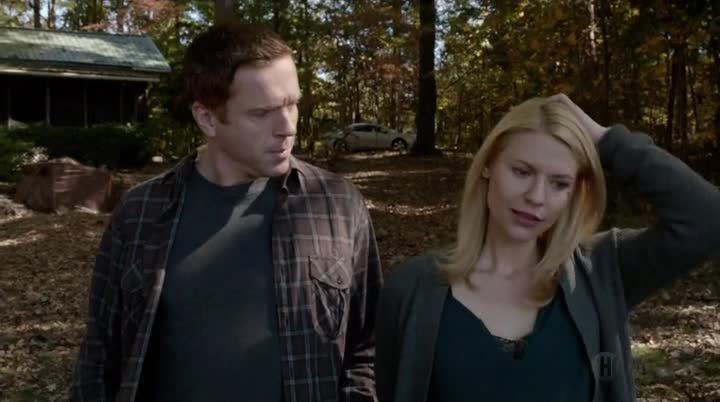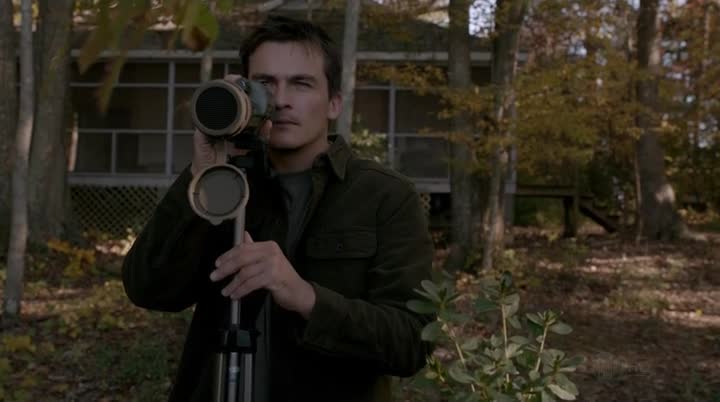 TV
TV In Which There Are No Secrets Now
 Monday, December 17, 2012 at 10:42AM
Monday, December 17, 2012 at 10:42AM 
The Sixteenth Floor
by HELEN SCHUMACHER
Homeland
creator Gideon Rath
It’s impossible to know for sure given the CIA’s classified records, but James Forrestal was perhaps the first person involved in its operation to go mad. As the first secretary of defense, Forrestal was instrumental in the creation of covert operations at the CIA when the department was established in 1947. By all accounts he was an obsessive workaholic and as such didn’t take it well when he was fired by President Truman in 1949. Two months later, Forrestal was dead, having jumped from the his 16th-story room at the psychiatric hospital he had been admitted to right after his dismissal. According to Tim Weiner’s history of the CIA (reported to be required reading for Homeland writers), Forrestal was in the midst of copying Sophocles’s poem ”The Chorus from Ajax” when he stopped in the middle of the word “nightingale” and lept to his death. “Nightingale” had been the codename for a CIA operation that Forrestal had been involved in to parachute Ukrainian resistors (including Nazi collaborators) into the USSR.
The Greek tragedy Forrestal had been copying before he killed himself is about the suicide of Ajax, a Trojan warrior. He has discovered that he has been tricked by the goddess Athena and was certain that the other warriors were laughing at his foolishness. Unable to face his shame, he impales himself on his sword.

Having garnered a dedicated fanbase during its first season and sweeping the drama categories at the Emmys about a week before the second season’s premiere, Homeland had to live up to some fierce expectations. And, of course, it didn’t, or at least not completely.
The actors’ performances continued to be top notch. We’ve been watching Claire Danes’s face crumple and quiver since 1994, and in 2012, her crying — a messy expression of hurt and anger — is no less compelling. Morgan Saylor got a sizable chunk of screen time in her oxford shirt and combat boots uniform after her keen performance in the first season. As a rule, teenagers are the worst and so was her Dana. I didn’t particularly enjoy the subplot that had her and Finn committing vehicular homicide, but it served as a turning point in her relationship with her father and illustrated the perils of honesty and how morality can turn grey when bad things happen to good people.
On the espionage side of things, the fast-paced second half of the season kept me guessing, which I love. Some critics may say it kept viewers guessing because the events were too preposterous to ever be logically considered. Maybe not, but as I’ve said before (and with apologies to the Sauls of the agency), when has the CIA ever acted logically? The agency has helped corrupt and unsparingly cruel dictators come to power, assured President Kennedy the Bay of Pigs invasion would be a success and produced a national intelligence estimate titled “Iraq’s Continuing Programs for Weapons of Mass Destruction” — all of which makes it seem petty to scoff a fictional show’s implausibilities. And if you think it’s unlikely that the agency would invite a bipolar analyst back to work for them, know that Frank Wisner, former head of CIA clandestine services and before that head of OSS (the agency’s World War II predecessor) operations, was diagnosed with “psychotic mania” and received electroshock treatments. Afterward he went back to work for the CIA at its London station.

It has been Carrie Mathison and the reaction to her illness that I’ve found most riveting this season. The initial question we asked week after week (for the first three-quarters of the season one anyway) on Homeland was, How deep is Brody’s allegiance to Abu Nazir? In one episode he was a traumatized marine reconciling his POW coping mechanisms with his suburban family-man duties and war-hero praises, in the next, a vengeful terrorist disillusioned by America’s hypocritical foreign policy. The tension between these two parts of a man was compelling but irrelevant once the CIA found out about the suicide vest and took charge of his relationship to Nazir. In the second season, this dynamic inner conflict was handed over to Carrie. We now found ourselves asking at least once during every episode, Is she still psych-ward crazy?

The best description of Carrie’s dance with madness I’ve read was in an interview with Kate Zambreno, who wasn’t talking about Homeland, but the online community she found herself in while writing Heroines, a memoir slash critical examination of the so-called hysterical women of modernist literature. In the interview, she describes Tumblr’s feminist confessions as a “circling around self-immolation.” It’s an act that sounds exactly like Carrie each time she runs into a Beirut apartment building looking for intelligence heedless of Saul’s protestations or makes out with Brody in a forest clearing.
In her pursuit of Nazir and her relationship with Brody, Carrie was reckless and impetuous, never more so than in the episode “I’ll Fly Away.” My pleas at her through the TV to stop running after Brody were no more effective than sidekick Virgil’s. And after Brody she went. The pair ended up hiding out at the Chaptico Bay Hotel. After eating dinner, as Carrie cleans up their styrofoam takeout containers, the mood turns romantic. She tells Brody that she had hoped catching Nazir would have made way for them to have a future — together.

“You know how crazy everyone says you are?” says Brody. “You’re even crazier than that.” They then begin fucking. Loudly. And, because Carrie has taken them to a safe harbor site where Saul was able to locate them and bug the room, everyone back at the operation’s headquarters gets to listen in. It’s painful to watch the reactions of all the agents who consider this woman a lost cause. Saul hopes that Carrie’s seduction is her way of restoring Brody’s shattered psyche so that he can continue as CIA informant. He argues with Quinn over whether or not to send in a team to arrest the paramours. Quinn turns up the climatic moaning on the agency speaker and asks Saul, “Is that someone turning it around or a stage-five delusional getting laid?”
The scene is thoroughly discomforting. It is a brazen act of self-immolation and the reaction to it bears a resemblance to the reaction to the story “Adrien Brody” by Marie Calloway (a writer whose Tumblr could be a candidate for the ones Zambreno was referencing). And while Calloway may not have the bipolar diagnosis of Carrie, there is a similar disgust and rubbernecking of Estes, Quinn and their goons at the CIA and online commenters of Calloway. And like Calloway’s concerned readers, Saul wonders if Carrie has considered the consequences and really knows what she’s doing. At times it has seemed that Carrie’s appetite for Abu Nazir is matched only by her willingness to humiliate herself.

In the Observer article that brought Calloway’s piece to a larger audience, Emily Gould is quoted: “Why do women who aren’t afraid to humiliate themselves appall us so much, and why do we rush to find superficial reasons to dismiss them (‘she’s crazy’ ‘she’s a narcissist’ ‘she’s young’ ‘she’s a famewhore’)? I think in part because they pose a threat to the social order, which relies on women’s embarrassment to keep them either silent or writing in socially accepted modes.”
Humiliation is a powerful emotion. The American government has used it (including sexual humiliation) on POWs in the “war against terror.” Carrie has been through the gauntlet of shame after being forced out of the CIA, arrested on the Brody family’s front lawn and committed to a hospital at the end of the first season. In the second season, Estes and others continue to try to use her unrestrained emotions to embarrass her into submission. She undermines their attempts by adopting humiliation as a tactic of her own — hyperperforming it, subverting it and being a better agent because of it — instead of succumbing to shame as Ajax did.
Helen Schumacher is the senior contributor to This Recording. She is a writer living in Brooklyn. She tumbls here and here. You can find an archive of her writing on This Recording here. You can find an archive of her Homeland reviews here.

"Weightless" - Natasha Bedingfield (mp3)
"Run-Run-Run" - Natasha Bedingfield (mp3)

 helen schumacher,
helen schumacher,  homeland
homeland 










































